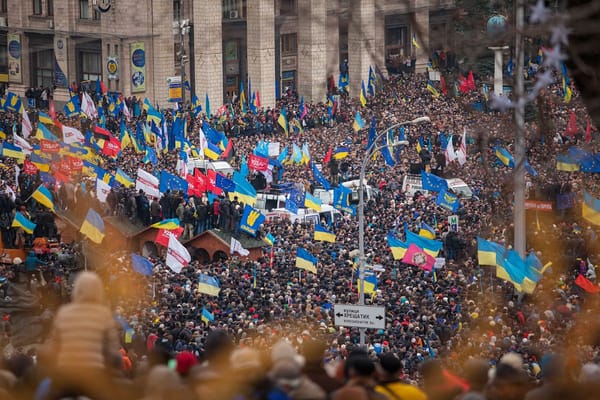As the war in Ukraine stretches into its second year, we continue to be told that Russia’s invasion was an irrational, unprovoked act animated by a paranoid dictator’s Hitlerian thirst for annexing territory. This claim undergirds the entire Western narrative on Ukraine. Indeed, it’s hard to find a statement by Western leaders on the subject that doesn’t include the word “unprovoked.”
It’s easy to see why. If this narrative is correct, then so must be the West’s strategy in Ukraine. If we are dealing with a “new Hitler” in Vladimir Putin, there is no room for diplomatic negotiations, which require a rational interlocutor. Moreover, there is no alternative to total military victory. Confronting Putin entails risks, of course, including that of a direct NATO-Russia confrontation, but the alternative would be to appease his maniacal drive for Lebensraum. Next in line would be the Baltic States, and after that—who knows?
“The Russian invasion of Ukraine was a rational response to Western encroachment.”
The problem is that this narrative is not only incorrect, but the opposite of the truth. Viewed from the standpoint of Russian national self-interest, the invasion of Ukraine was a rational response to the Western encirclement of Russia’s borders that began during the dissolution of the Soviet Union and continued to the eve of the war. By that point, events in Ukraine had reached a tipping point, and were plausibly understood by Russia’s leadership to represent an existential threat to its survival—leading Moscow to take pre-emptive action.
